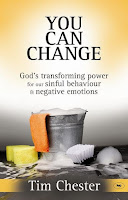From the age of sixteen onwards I had one single ambition (becoming a successful writer), from which I never wavered, in the prosecution of which I spent every ounce I could, on which I really and deliberately staked my whole contentment: and I recognise myself as having unmistakably failed in it. I feel that I have some right to talk to you as a man in the same boat.
The side of me which longs, not to write, for no one can stop us doing that, but to be approved as a writer, is not the side of us that is really worth much. And depend upon it, unless God has abandoned us, he will find means to cauterise that side somehow or other. If we can take the pain well and truly now and by it forever the wish to be distinguished beyond our fellows.
And honestly, the being cured, with all the pain, has pleasure too: one creeps home, tired and bruised into a state of mind that is really restful, when all one’s ambitions have been given up. Then one can really say for the first time, “Thy Kingdom come.” For in that Kingdom there will be no pre-eminences and a man must have reached the stage of not caring two straws about his own status before he can enter it.
Think how difficult that would be if one succeeded as a writer: how bitter this necessary purgation at the age of sixty, when literary success had made your whole life and you had then got to begin to go through the stage of seeing it all as dust and ashes. Perhaps God has been specially kind to us in forcing us to get over it at the beginning.
At all events, whether we like it or not, we have got to take the shock. As you know so well, we have got to die. Cry, kick, swear, we may: only to come in the end and die far more painfully and later.
I would have given almost anything—I shudder to think what I would have given if I had been allowed—to be a successful writer. I am writing as I do simply and solely because I think the only thing for you to do is absolutely to kill the part of you that wants success.
CS Lewis They Stand Together: The Letters of CS Lewis to Arthur Greeves 379-340


















